2024 Relocation Guide (part 5): Financing A Property
Top Strategies for Financing in Mexico: A Guide for Real Estate Investments
For US and Canadian buyers looking to secure their dream home in the Riviera Maya, mortgage options now exist which are identical to the mortgage options back home. From coastal homes to urban dwellings, the right financing strategy can turn a property dream into a tangible asset.
Table of Contents
Understanding Financing Options
Typical Programs and Property Types
Buying Presale / Preconstruction with a Mortgage
Home Equity and Personal Loan Options
Utilizing Retirement Savings and Crypto
Navigating Insurance and Closing Costs
Tips for Successfully Financing Mexican Real Estate
Other Articles about Real Estate in the Riviera Maya
Understanding Financing Options in Mexico
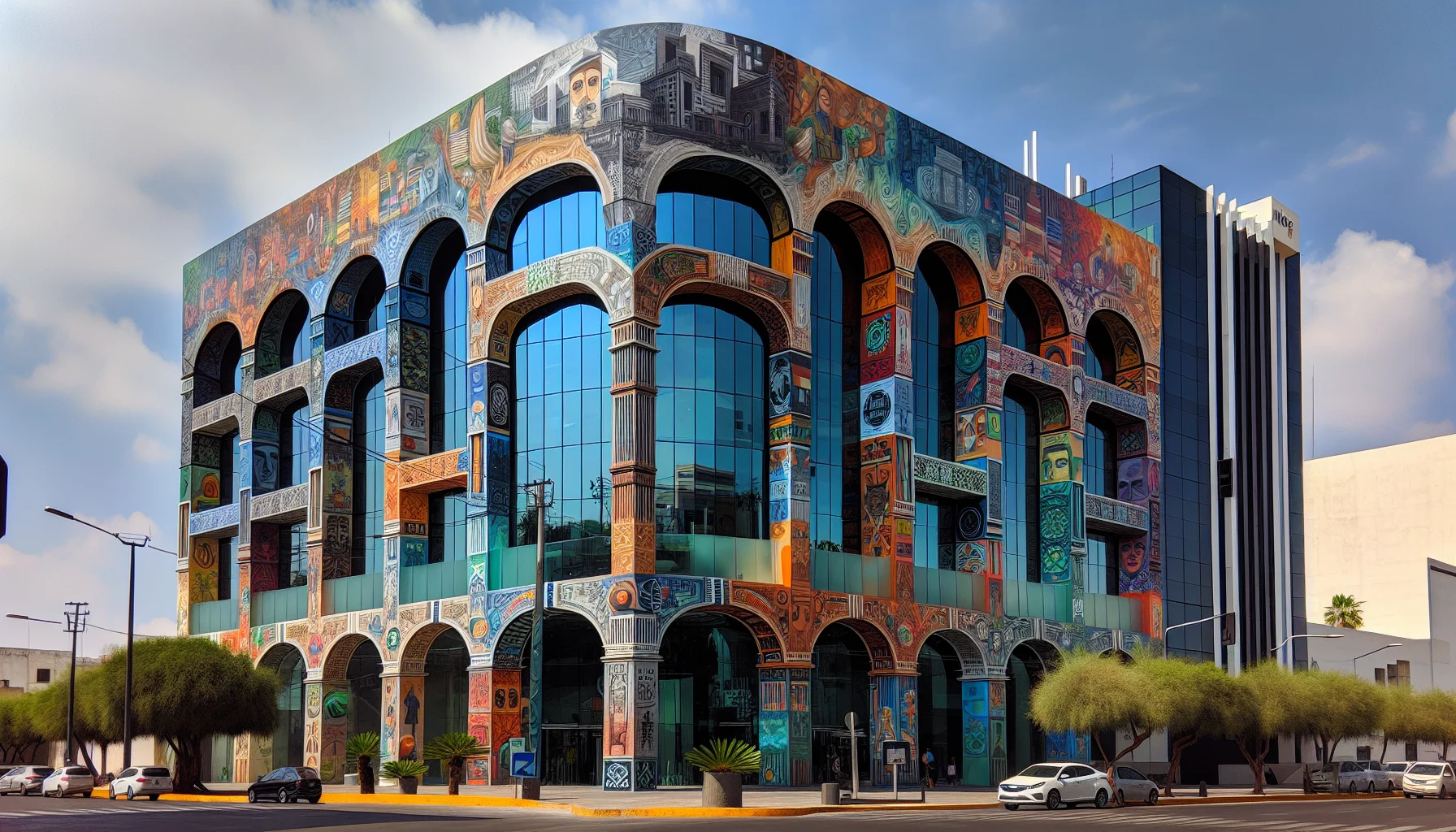
Financing options like developer financing, Mexican bank loans, and cross-border loans allow foreign buyers to invest in Mexican real estate without paying the full price upfront. Beneficial exchange rates for foreign income earners make property purchases even more attractive, with each option offering different requirements and terms.
Developer Financing for Real Estate Investments
Developer financing is popular for investors in presale properties, offering flexible payment options but requiring a large down payment. Interest rates are typically higher than in other countries, but the investment can be worthwhile given Mexico's real estate potential.
- Down payments range from 30% to 80%.
- Financing periods can last 5 to 10 years, allowing rental income to cover loan payments.
Mexican Bank Loans for Property Purchases

Mexican bank loans provide legal certainty, tax-deductible interest, and extended repayment terms, making them a secure option for property buyers. However, these loans may require stricter approval processes, including proof of Mexican residency and local income.
- Up to 70% financing of the property’s appraised value.
- Terms up to 30 years, with fixed interest rates.
- Regulated by financial institutions in Mexico and the U.S.
- Requires organized paperwork and proof of local income sources.
Cross-Border Loans for Foreign Buyers
Cross-border loans offer foreign buyers USD-based financing, eliminating exchange rate risk, which is ideal for those earning in USD. However, they involve extensive paperwork and require a solid understanding of the terms.
Interest rates and terms vary between providers.
Research and professional advice are crucial to aligning the loan with your financial goals.
Reach out to an expert relocation specialist at Mycasa Real Estate for help navigating the ever-expanding fields of lenders operating in the Riviera Maya.
Typical Programs and Property Types
Mortgage lenders offer lending programs for overseas properties with similar features to comparable programs in the U.S. and Canada.
A good credit score is a must, typically 700 or above, and there are minimum purchase prices and loan amounts. Lenders in this space will finance up to 80% of the value of the property, depending on your credit profile.
A typical mortgage offering is as follows:
- 30 yr fixed rate
- Purchase / Refinance with or w/o cashout
- Minimum loan amounts exist and they vary from lender to lender
In general, you can expect rates slightly higher than in the US because of the increased risk profile of lending on an overseas property.
And it´s not because buying a property in Mexico is inherently more risky.
On the contrary, buying property here has turned into one of the safest investments you can make and it's becoming an even more attractive option as Mexico´s star rises as a US trade partner.
The increased risk profile, in the bank´s eyes, is in exercising their recourse if the loan becomes a non-performing asset.

Buying Presale/Preconstruction with a Mortgage
Rainier Rodriguez, buyer’s agent with Mycasa Real Estate and former Sr Loan Adviser with Chase Private Client, frequently gets asked, “can we purchase a presale or preconstruction property and use a mortgage?”
The answer is yes.
There are a few additional requirements. You will need to offer a healthy down payment and usually make payments throughout the construction (depending on the lender & also the developer involved). Some developers DO allow a 30-40 down payment and nothing else until possession and title. That particular profile would be perfect for a cross border mortgage
When the property is ready to be titled, you can close your mortgage. That is the most important piece of the puzzle when it comes to presale/preconstruction mortgages. The lending bank will absolutely require title in order to close on your mortgage loan.
Home Equity and Personal Loan Options

In addition to traditional financing options like developer financing and Mexican bank loans, U.S.-based investors can consider Home Equity Lines of Credit (HELOCs) and personal loans for property purchases in Mexico. HELOCs can provide favorable terms and allow access to up to 70% of a home's equity, turning buyers into cash buyers, while personal loans offer quick approval but may come with high interest rates and no collateral, requiring careful consideration.
Home Equity Loans for Property Investments
Home equity loans are a viable financing option for U.S. and Canadian residents investing in Mexican real estate, offering benefits such as low-interest rates based on home equity and potential tax-deductible interest. However, good to excellent credit is typically required for approval.
- Average HELOC rates range from 8.74% to 10.48%.
- Flexible repayment terms of 10 to 25 years.
- Fixed-rate options allow for predictable monthly payments.
- Loans can be reused as a line of credit when paid down.
Personal Loans for Real Estate Transactions
Personal loans are a financing option for investing in Mexican real estate, offering quick funding for urgent purchases but typically with maximum borrowing limits that may not cover the full cost.
Interest rates can buy high, and shorter repayment terms lead to high monthly payments.
Personal loans cannot be used as down payments on U.S. mortgages.
They carry risks such as lack of collateral and origination fees, increasing upfront costs.
Utilizing Retirement Savings and Cryptocurrency
Retirement savings and cryptocurrencies are emerging as unconventional financing methods for real estate investments in Mexico, offering unique advantages like tax-deferred income and quicker transactions. By utilizing retirement accounts through self-directed IRAs and leveraging cryptocurrencies, investors can explore innovative avenues in the evolving real estate market.
Financing with Retirement Savings Accounts

Utilizing retirement savings accounts, such as self-directed IRAs and 401Ks, for real estate investments in Mexico can diversify your portfolio and offer tax advantages like tax-deferred rental income. However, properties must be strictly for investment, and compliance with IRS regulations is essential, making it advisable to consult a financial advisor or tax professional.
- Self-directed IRAs can finance high ROI properties in Mexico.
- Rental income is tax-deferred, and mortgage interest may be deductible in the U.S.
Purchasing Property with Cryptocurrency
Financing real estate transactions with cryptocurrency is an emerging trend that offers faster, more cost-effective alternatives to traditional methods by eliminating intermediary fees and unfavorable exchange rates. While this method provides a degree of anonymity, it is essential to understand the associated risks as the market continues to evolve.
- Cryptocurrency transactions can streamline the buying process for real estate.
- As acceptance grows, more investors may explore this innovative financing option.
Navigating Insurance and Closing Costs
Understanding insurance and closing costs is essential when investing in Mexican real estate, as property insurance policies and closing expenses differ significantly from other countries. Closing costs typically range from 4% to 9% of the purchase price, and Mexican property insurance offers coverage against risks like hurricanes, earthquakes, and personal liabilities.
- U.S.-based companies provide insurance policies aligned with U.S. terms, underwritten by Mexican entities.
- Closing costs may increase to 7–10% if a mortgage is involved.
Understanding closing costs is a crucial aspect of the property buying process. These costs include:
- 2% - 3% transfer tax
- Trust permit fees
- Foreign investment registry fees
- Trustee bank acceptance fees
- First year’s trust fee from the trustee bank
- Appraisal fees for future tax assessments
- Attorney and Notary fees
- Other miscellaneous costs
Being aware of these costs can help you budget your investment accurately and avoid any unpleasant surprises down the line.
Property Insurance Requirements
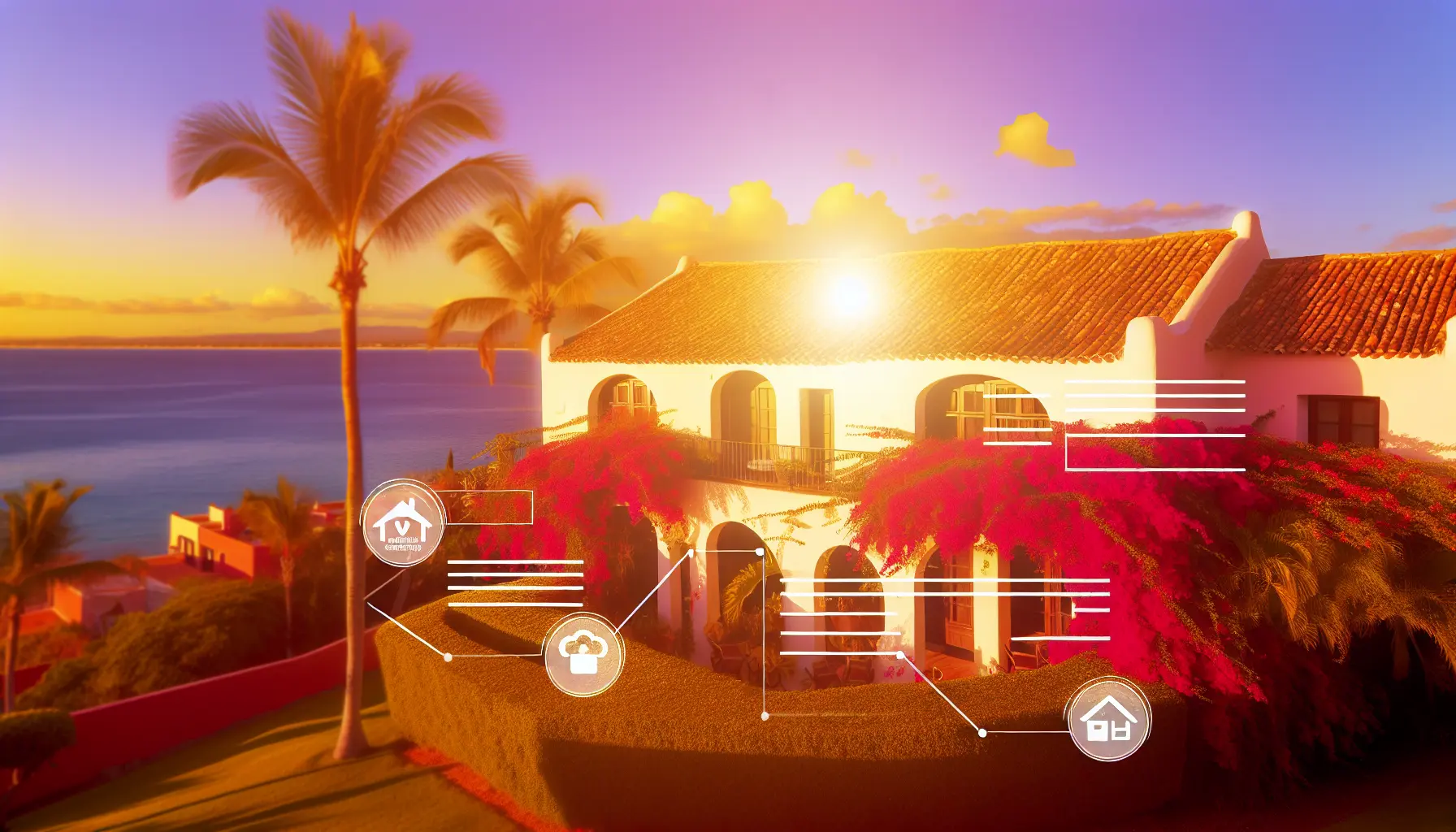
Property insurance in Mexico offers coverage for various risks and can be customized based on location-specific threats like hurricanes or earthquakes. While these policies may include liability coverage, choosing a reputable insurer is essential for reliable claims processing.
- Title insurance provides protection against invalid property deeds, adding security to investments.
- Title insurance is not mandatory for cash purchases but may be required for mortgage transactions.
Understanding Closing Costs
Closing costs in Mexico typically range from 4% to 10% of the purchase price and encompass various fees essential for the buying process. Key costs include a 2% transfer tax, trust permit fee ($1,200), foreign investment registry fee ($700), and additional fees like:
- $15 for a non-encumbrance certificate
- $30 for preventative notice advice
- Land Registry fees (0.5% to 1.0%)
- Notary fees (0.5% to 1%)
- Attorney fees ($2,000 - $3,000)
Understanding these costs helps with accurate budgeting and ensures a smoother transaction. Click here for a full breakdown
Tips for Successfully Financing Mexican Real Estate
Successfully financing real estate in Mexico requires collaboration with local professionals and an understanding of regulations. Local agents provide insights into potential investments, financing options, and market nuances, making their expertise essential for navigating the complex buying process.
- Partnering with knowledgeable professionals helps streamline transactions.
- Factors like property type and pricing currency influence financing strategies.
Partnering with Local Professionals

Collaborating with local real estate agents, mortgage brokers, and legal experts is essential for effectively navigating the financing process in Mexico. These professionals provide valuable market insights and help investors comply with local laws, ultimately ensuring a smoother transaction.
- Expertise in market trends and growth potential aids in strategic decision-making.
- Local agents assist with everything from mortgage pre-approval to post-purchase guidance.
Other Articles about Real Estate in the Riviera Maya
Complete 2024 Guide to Buying Land In Mexico
Chetumal Train Station Boosts Real Estate for US and Canadian Buyers
Relocation Guide 2024 (part 9): 10 Warning Signs of a Bad Real Estate Agent
Top Tulum Neighborhoods for Living and Investment 2024
Top Gated Communities in Playa Del Carmen
Frequently Asked Questions
How much do you need for a down payment in Mexico?
In Mexico, when buying in cash, developers often require a minimum of 30% down with a schedule of payments during construction and a final percentage upon property possession and titling (depending on negotiations). When purchasing with a mortgage, 30% - 50% is the minimum requirement with some developers requiring more
Is it difficult to get a mortgage in Mexico?
Yes, it is possible to get a Mexican mortgage as a non-Mexican, but Mexican mortgages are generally less competitive than those in the United States. Like in the US, Mexican banks have standard requirements for mortgages.
Do you need a credit score to buy a house in Mexico?
When buying in cash, your credit score may come into play. When financing with a mortgage, you will need a credit score to buy a house in Mexico, and as a foreigner, your US or Canadian income can be used to qualify you for a mortgage.
What are the main financing options available for buying real estate in Mexico?
In Mexico, the main financing options for buying real estate include developer financing, Mexican bank loans, and cross-border loans, along with options such as home equity loans and personal loans. Consider exploring these options based on your financial situation and preferences.
What are the advantages of using a Mexican bank loan for property purchases?
Using a Mexican bank loan for property purchases offers full legal certainty, potential tax deductions on mortgage interest paid in Mexico, and fixed interest rates. These advantages make it a favorable option for financing property in Mexico.
Updated 1/16/25
About the Author:
Professor Raul Morales is a distinguished figure in the real estate industry, bringing a wealth of expertise and insights to his readers. As the former Vice President of Communications for AMPI (Asociación Mexicana de Profesionales Inmobiliarios), the equivalent of the National Association of Realtors in Mexico, he has been at the forefront of shaping real estate practices in the country. His deep understanding of the industry is further enriched by his role as a Professor of Real Estate Negotiations, where he imparts knowledge in the prestigious AMPI Real Estate Licensing Diploma Certification Course. With a career marked by leadership and educational contributions, Professor Morales is not only an expert in his field but also a guiding force in shaping the future of real estate in Mexico and is currently implementing a video enhanced MLS like system in Mexico.



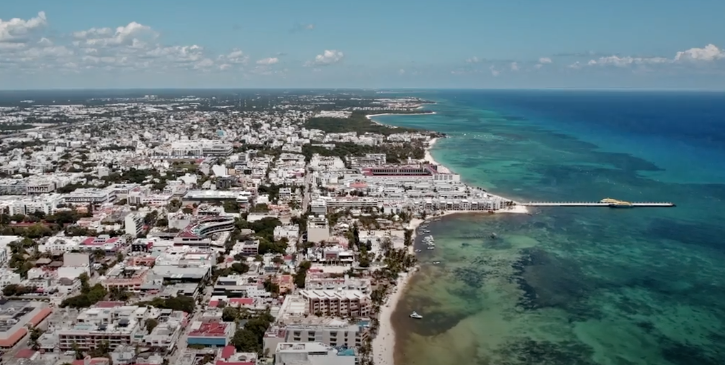



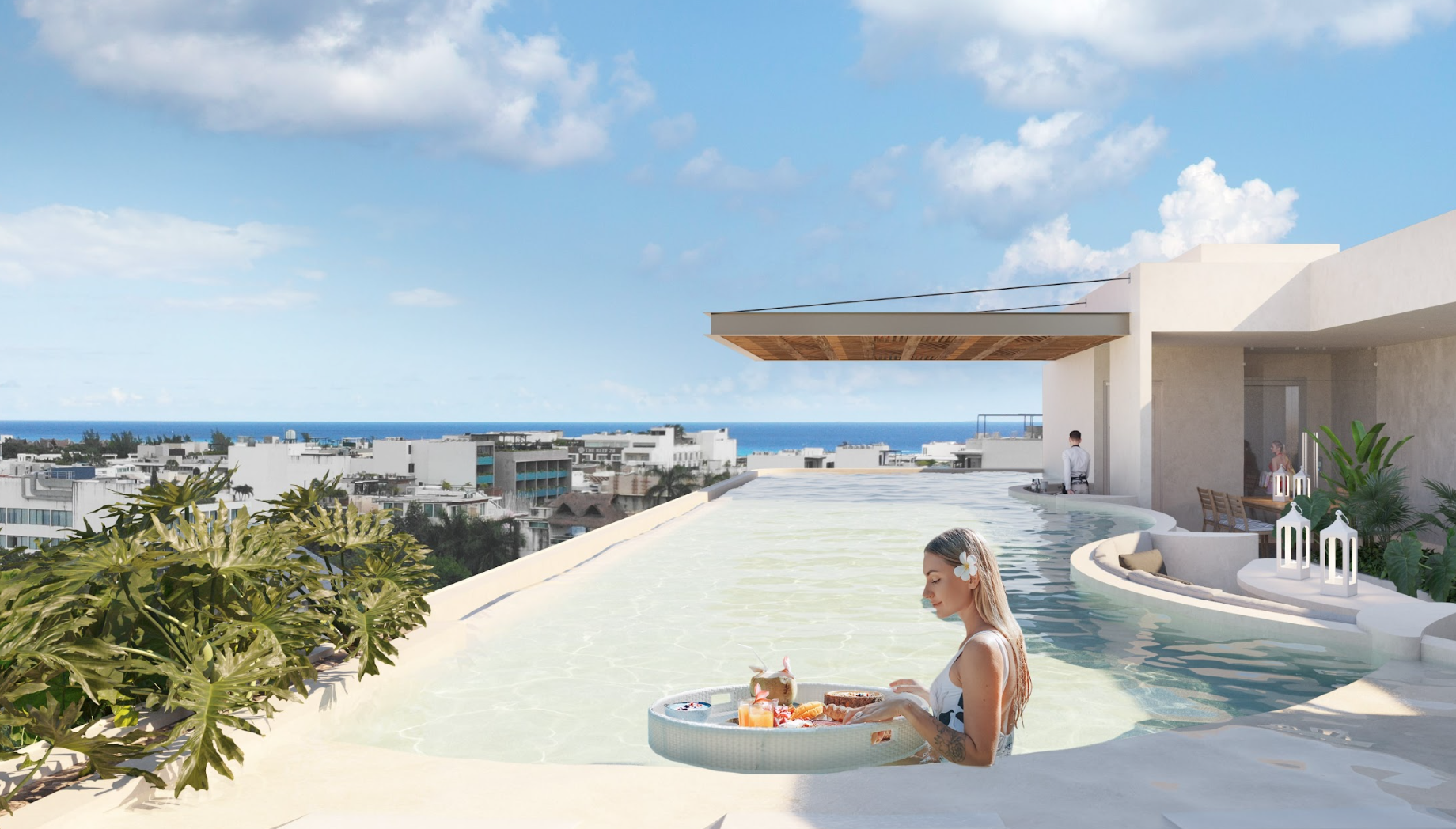

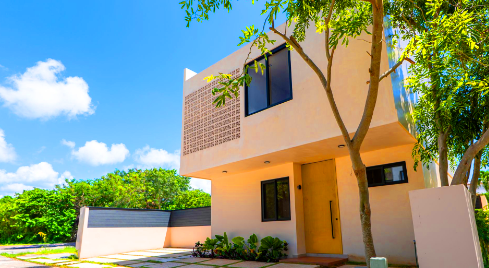


Comments (0)